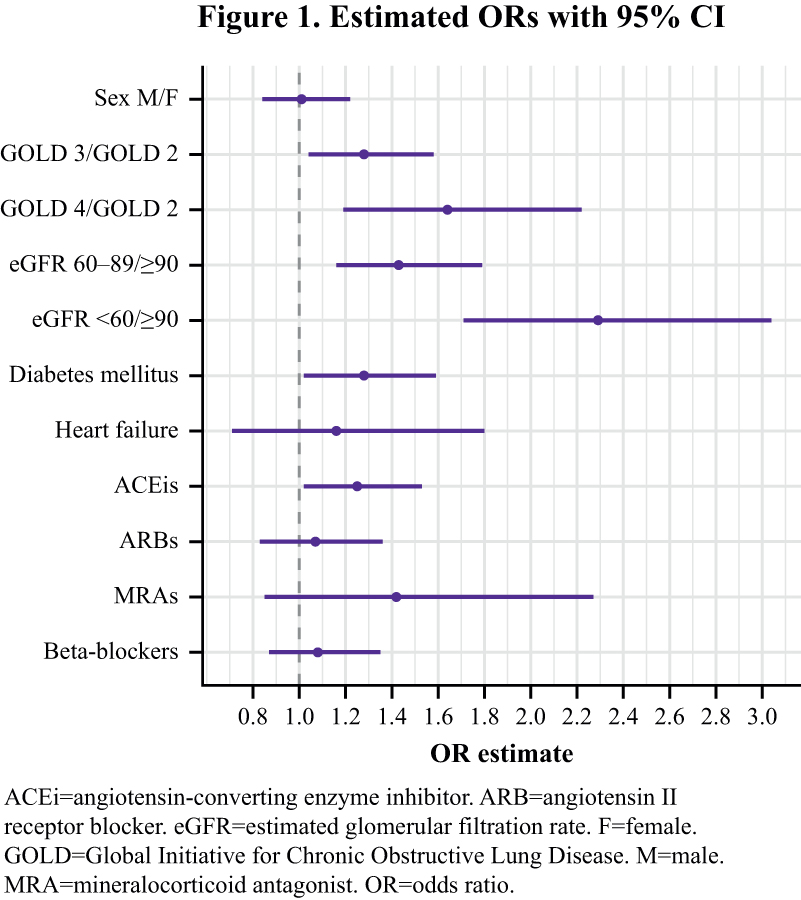Abstract
Introduction: Mortality risk is progressively increased with the level of hyperkalemia (?5.0 mmol/L). This is the first study in which the risk of hyperkalemia has been explicitly studied in moderate to severe COPD patients.
Aims and objectives: The risk of hyperkalemia was retrospectively analysed from two clinical trials in 7,968 Caucasian patients (GOLD 2-4) (Ferguson et al Lancet Respir Med 2018, Rabe et al NEJM 2020). The associations between hyperkalemia and 1) the use of various drugs and 2) common comorbidities of COPD were studied.
Methods: The effects of GOLD status, renal failure, diabetes and concomitant medications such as renin-angiotensin-aldosterone system (RAAS) inhibitor drugs on hyperkalemia risk (?5.5 mmol/L) were studied. Associations between hyperkalemia and risk factors were assessed as odds ratios (OR) and estimated using multivariate logistic regression.
Results: The frequency of hyperkalemia cases increased with GOLD stage; from 5.3% in GOLD 2 to 8% in GOLD 4. Several factors showed an increase in risk (figure 1).

Conclusions: Hyperkalemia risk was associated with COPD disease severity, decreasing renal function, diabetes and the use of ACEi. Hyperkalemia has the potential to increase the risk of mortality. Clinicians should consider monitoring K+ regularly in patients with more severe COPD, particularly in patients with renal impairment and/or polypharmacy.